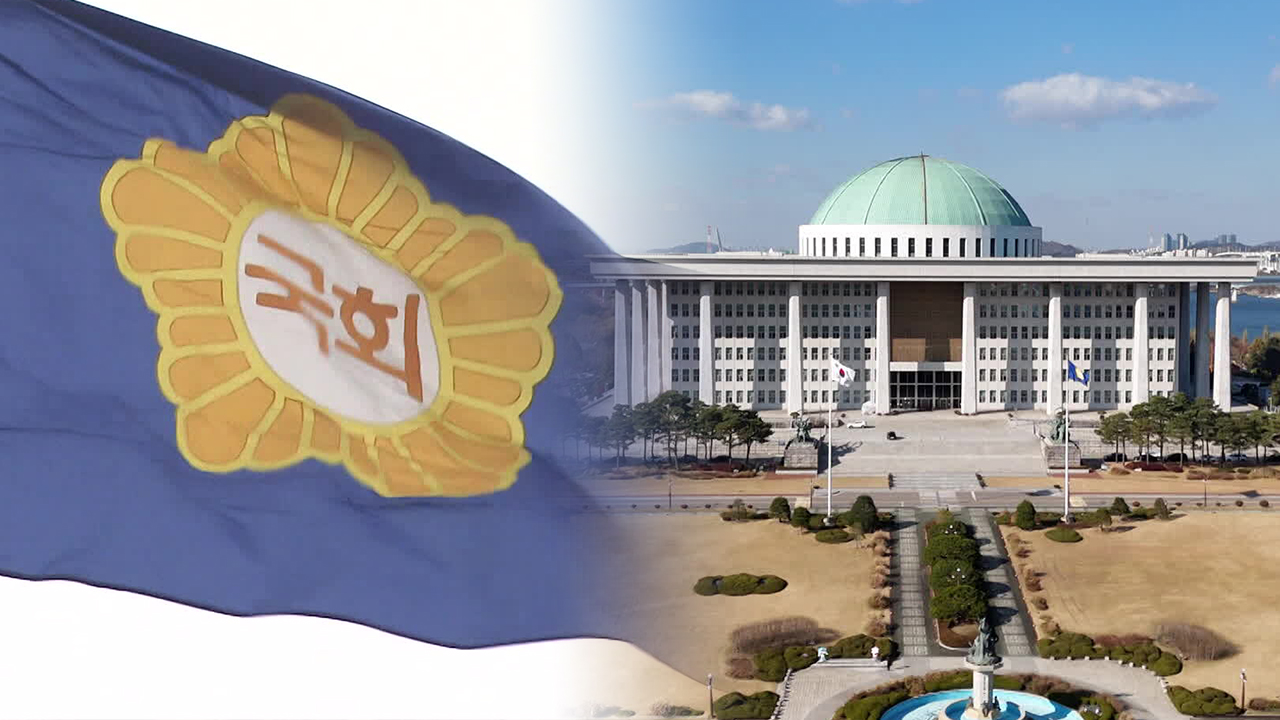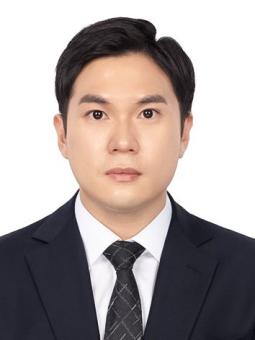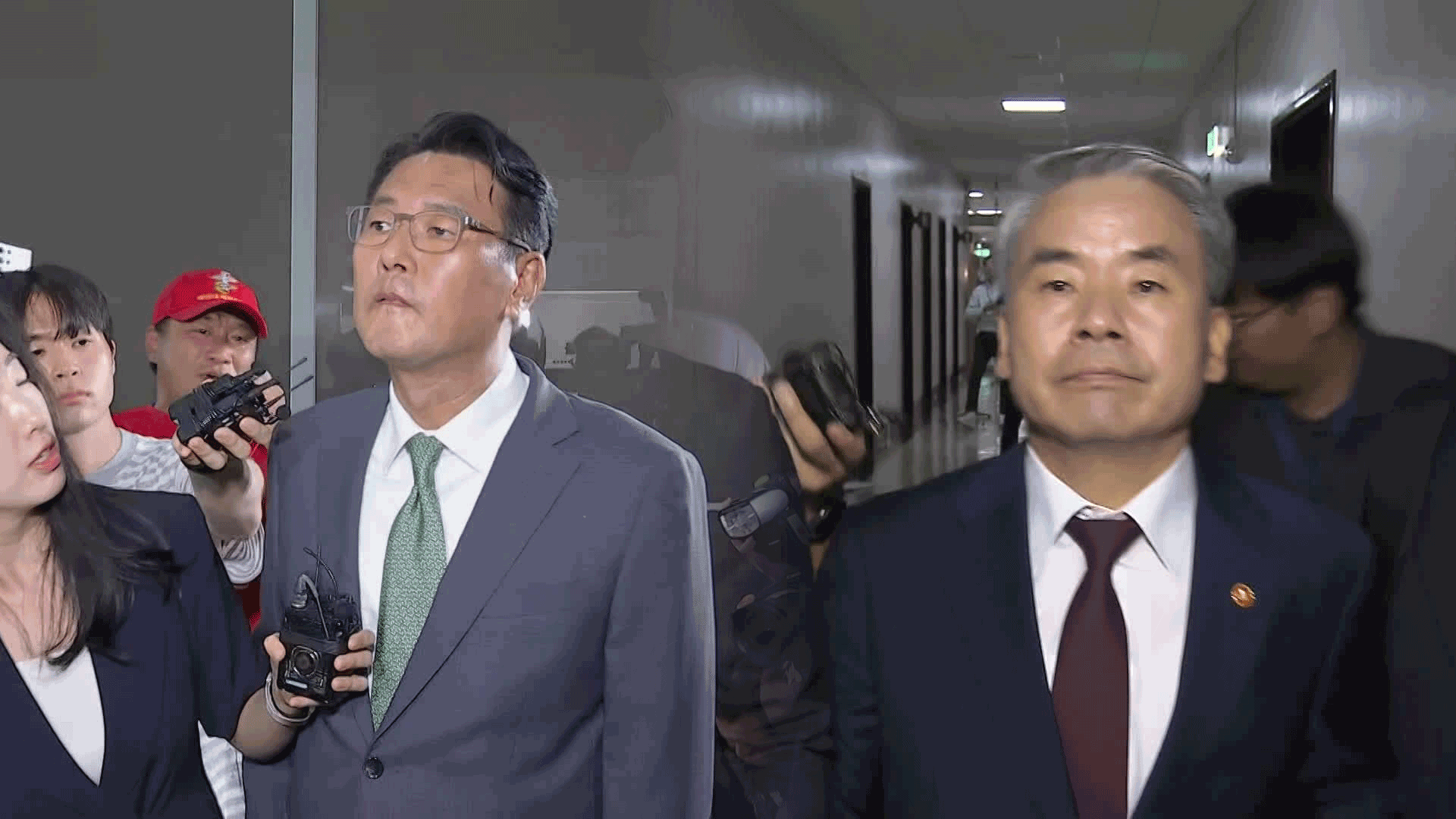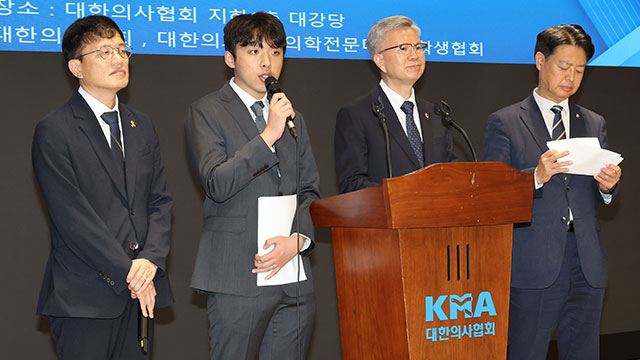Bill to stop salaries for arrested lawmakers passes subcommittee
입력 2024.10.29 (23:52)
읽어주기 기능은 크롬기반의
브라우저에서만 사용하실 수 있습니다.
[Anchor]
Even if members of the National Assembly are arrested on criminal charges, they receive activity fees and allowances every month without fail.
Receiving allowances from taxpayers' money while not doing any work has caused public discontent.
To prevent this, a bill to amend the National Assembly member allowance law has passed the subcommittee of the National Assembly.
Kim Cheong-yun reports.
[Report]
Former lawmakers Lee Sang-jik and Youn Kwan-suk are currently on trial after being arrested and indicted for embezzlement of company funds and the money envelope scandal at a party convention, respectively.
Despite being unable to perform normal legislative activities, they have consistently received over 10 million won in salary every month.
To end this practice, civic groups submitted a legislative petition to the 21st National Assembly to stop the payment of salaries to lawmakers who are arrested and indicted.
Members of both the ruling and opposition parties also rushed to propose related bills, but it was only a temporary measure.
After some back-and-forth, the bills were discarded.
The recently passed amendment to the National Assembly member allowance law in the National Assembly's operating committee states that salaries will not be paid to lawmakers who are arrested on criminal charges, in principle.
However, if they are acquitted, exonerated, or if the charges are dismissed, the salaries that were not received during that time will be paid retroactively.
The bill still needs to pass through the full committee and the plenary session, but for now, both the ruling and opposition parties are positive about the bill.
[Kim Hee-soon/Team Leader of the People's Solidarity of Participatory Democracy: "(The National Assembly member allowance law) passing the subcommittee is very late, but it is still a fortunate development. I urge for a swift passage in the plenary session." ]
However, the 'National Assembly Act amendment' that would prevent National Assembly members from threatening or insulting government officials or witnesses attending national audits is currently pending in the subcommittee.
The so-called 'waiver of immunity law,' which would allow the arrest of lawmakers with criminal charges without a vote in the plenary session, also did not pass the subcommittee.
KBS News, Kim Cheong-yun.
Even if members of the National Assembly are arrested on criminal charges, they receive activity fees and allowances every month without fail.
Receiving allowances from taxpayers' money while not doing any work has caused public discontent.
To prevent this, a bill to amend the National Assembly member allowance law has passed the subcommittee of the National Assembly.
Kim Cheong-yun reports.
[Report]
Former lawmakers Lee Sang-jik and Youn Kwan-suk are currently on trial after being arrested and indicted for embezzlement of company funds and the money envelope scandal at a party convention, respectively.
Despite being unable to perform normal legislative activities, they have consistently received over 10 million won in salary every month.
To end this practice, civic groups submitted a legislative petition to the 21st National Assembly to stop the payment of salaries to lawmakers who are arrested and indicted.
Members of both the ruling and opposition parties also rushed to propose related bills, but it was only a temporary measure.
After some back-and-forth, the bills were discarded.
The recently passed amendment to the National Assembly member allowance law in the National Assembly's operating committee states that salaries will not be paid to lawmakers who are arrested on criminal charges, in principle.
However, if they are acquitted, exonerated, or if the charges are dismissed, the salaries that were not received during that time will be paid retroactively.
The bill still needs to pass through the full committee and the plenary session, but for now, both the ruling and opposition parties are positive about the bill.
[Kim Hee-soon/Team Leader of the People's Solidarity of Participatory Democracy: "(The National Assembly member allowance law) passing the subcommittee is very late, but it is still a fortunate development. I urge for a swift passage in the plenary session." ]
However, the 'National Assembly Act amendment' that would prevent National Assembly members from threatening or insulting government officials or witnesses attending national audits is currently pending in the subcommittee.
The so-called 'waiver of immunity law,' which would allow the arrest of lawmakers with criminal charges without a vote in the plenary session, also did not pass the subcommittee.
KBS News, Kim Cheong-yun.
■ 제보하기
▷ 카카오톡 : 'KBS제보' 검색, 채널 추가
▷ 전화 : 02-781-1234, 4444
▷ 이메일 : kbs1234@kbs.co.kr
▷ 유튜브, 네이버, 카카오에서도 KBS뉴스를 구독해주세요!
- Bill to stop salaries for arrested lawmakers passes subcommittee
-
- 입력 2024-10-29 23:52:43

[Anchor]
Even if members of the National Assembly are arrested on criminal charges, they receive activity fees and allowances every month without fail.
Receiving allowances from taxpayers' money while not doing any work has caused public discontent.
To prevent this, a bill to amend the National Assembly member allowance law has passed the subcommittee of the National Assembly.
Kim Cheong-yun reports.
[Report]
Former lawmakers Lee Sang-jik and Youn Kwan-suk are currently on trial after being arrested and indicted for embezzlement of company funds and the money envelope scandal at a party convention, respectively.
Despite being unable to perform normal legislative activities, they have consistently received over 10 million won in salary every month.
To end this practice, civic groups submitted a legislative petition to the 21st National Assembly to stop the payment of salaries to lawmakers who are arrested and indicted.
Members of both the ruling and opposition parties also rushed to propose related bills, but it was only a temporary measure.
After some back-and-forth, the bills were discarded.
The recently passed amendment to the National Assembly member allowance law in the National Assembly's operating committee states that salaries will not be paid to lawmakers who are arrested on criminal charges, in principle.
However, if they are acquitted, exonerated, or if the charges are dismissed, the salaries that were not received during that time will be paid retroactively.
The bill still needs to pass through the full committee and the plenary session, but for now, both the ruling and opposition parties are positive about the bill.
[Kim Hee-soon/Team Leader of the People's Solidarity of Participatory Democracy: "(The National Assembly member allowance law) passing the subcommittee is very late, but it is still a fortunate development. I urge for a swift passage in the plenary session." ]
However, the 'National Assembly Act amendment' that would prevent National Assembly members from threatening or insulting government officials or witnesses attending national audits is currently pending in the subcommittee.
The so-called 'waiver of immunity law,' which would allow the arrest of lawmakers with criminal charges without a vote in the plenary session, also did not pass the subcommittee.
KBS News, Kim Cheong-yun.
Even if members of the National Assembly are arrested on criminal charges, they receive activity fees and allowances every month without fail.
Receiving allowances from taxpayers' money while not doing any work has caused public discontent.
To prevent this, a bill to amend the National Assembly member allowance law has passed the subcommittee of the National Assembly.
Kim Cheong-yun reports.
[Report]
Former lawmakers Lee Sang-jik and Youn Kwan-suk are currently on trial after being arrested and indicted for embezzlement of company funds and the money envelope scandal at a party convention, respectively.
Despite being unable to perform normal legislative activities, they have consistently received over 10 million won in salary every month.
To end this practice, civic groups submitted a legislative petition to the 21st National Assembly to stop the payment of salaries to lawmakers who are arrested and indicted.
Members of both the ruling and opposition parties also rushed to propose related bills, but it was only a temporary measure.
After some back-and-forth, the bills were discarded.
The recently passed amendment to the National Assembly member allowance law in the National Assembly's operating committee states that salaries will not be paid to lawmakers who are arrested on criminal charges, in principle.
However, if they are acquitted, exonerated, or if the charges are dismissed, the salaries that were not received during that time will be paid retroactively.
The bill still needs to pass through the full committee and the plenary session, but for now, both the ruling and opposition parties are positive about the bill.
[Kim Hee-soon/Team Leader of the People's Solidarity of Participatory Democracy: "(The National Assembly member allowance law) passing the subcommittee is very late, but it is still a fortunate development. I urge for a swift passage in the plenary session." ]
However, the 'National Assembly Act amendment' that would prevent National Assembly members from threatening or insulting government officials or witnesses attending national audits is currently pending in the subcommittee.
The so-called 'waiver of immunity law,' which would allow the arrest of lawmakers with criminal charges without a vote in the plenary session, also did not pass the subcommittee.
KBS News, Kim Cheong-yun.
-
-

김청윤 기자 cyworld@kbs.co.kr
김청윤 기자의 기사 모음
-
이 기사가 좋으셨다면
-
좋아요
0
-
응원해요
0
-
후속 원해요
0















이 기사에 대한 의견을 남겨주세요.